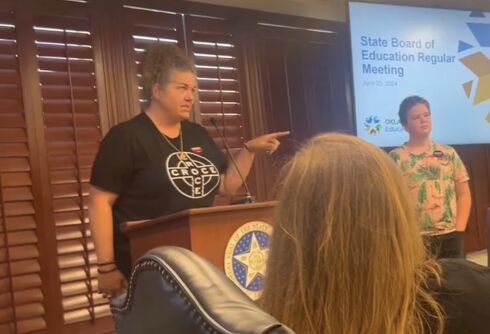WASHINGTON — The House and Senate appeared headed for another partisan battle as the House prepared to take up its version of the once-noncontroversial Violence Against Women Act.
The Republican-crafted House bill to renew the popular 1994 act, which expired in 2011, was introduced Friday to instant criticism from Senate Democrats, who said it fell short in fulfilling the law’s mission of protecting women from domestic violence.
 The office of House Majority Leader Eric Cantor, R-Va., defended the bill, saying Cantor was committed to reauthorizing the law and had worked hard to build consensus between the two parties and with advocacy groups.
The office of House Majority Leader Eric Cantor, R-Va., defended the bill, saying Cantor was committed to reauthorizing the law and had worked hard to build consensus between the two parties and with advocacy groups.
The Senate last week passed its version of what is called VAWA on a bipartisan 78-22 vote, and Senate supporters, joined by House Democrats, have been urging House GOP leaders to model their legislation after the Senate bill.
Never Miss a Beat
Subscribe to our newsletter to stay ahead of the latest LGBTQ+ political news and insights.
The House bill, headed for a vote next week, does move toward the Senate on the issue of giving tribal authorities the power to prosecute non-Indians in domestic violence cases but drew fire on other points.
The House proposal, said Senate Judiciary Committee Chairman Patrick Leahy (D-Vt.), a chief sponsor of the Senate bill, “will not provide critical protections for rape victims, domestic violence victims, human trafficking victims, students on campuses or stalking victims.”
Sen. Patty Murray (D-Wash.), said it stripped protections in the Senate bill for the lesbian and gay community and “drastically reduces protections for women on tribal lands.”
Article continues below
Cantor has been at the head of GOP efforts to come up with a House alternative to the Senate bill and has promised legislation that will ensure that the law’s role in protecting women is continued.
Supporters of the House approach say it strengthens protections by increasing accountability in VAWA programs and guaranteeing that sexual assault resources are distributed equitably.
The law has been a cornerstone in federal efforts to reduce acts of violence against women and prosecute offenders and is credited for making Americans more aware of the domestic violence issue. It provides federal grants for programs such as transitional housing, law enforcement training, legal assistance, anti-violence hotlines and improving campus safety.
This material may not be published, broadcast, rewritten, or redistributed.













